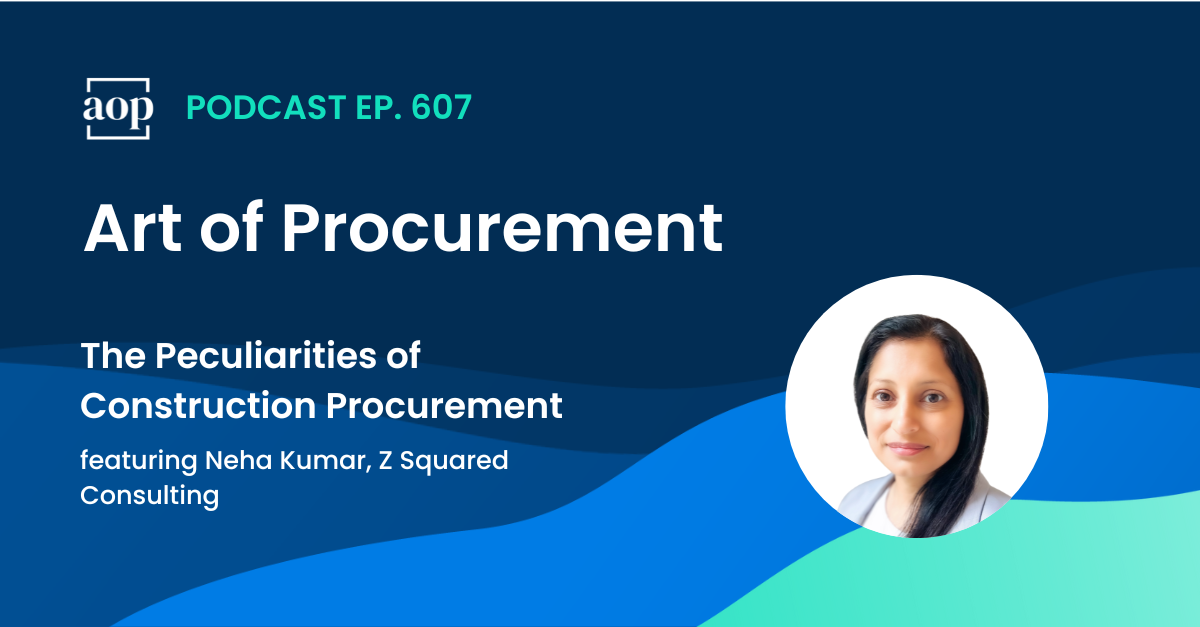1 min read
The Peculiarities of Construction Procurement
Philip Ideson : Updated on December 1, 2024

“We all know that there are going to be change orders and that pricing will fluctuate. That’s why focusing on the schedule and the purchasing processes in the beginning gives everyone guidelines to get over those humps.” —Neha Kumar
Procurement’s relationships in the construction category are less about managing stakeholders and supplier partnerships and more like running a small village.
One of the things that stood out to me from my conversation with Neha Kumar is the idea that “schedule matters as much as price.” And it makes sense; with that many groups working together, a slip in schedule or a delay in decision making can very quickly become an issue.
Rather than running an RFP to select a supplier, knowing how the construction project is going to run, construction sourcing assumes that there will be lots of change. The RFP sets up the basics and allows the company to select which consultants they want to work with, and then establishes how decisions will be made later when things inevitably change.
Depending on the model chosen, the company, designers, and general (plus sub) contractors will play different overlapping roles:
- Construction management: Procurement takes a leadership role and is heavily involved with the business and consultants right from the beginning of the project. They will start working to make sure the products chosen are accessible long before the project begins.
- Design Build: Designers do their part and then pass along to the general contractor for a construction proposal. In this model, the business has far less say in which subcontractors are selected, but it often moves the process along faster because there are less parties to coordinate.
Once the project begins, procurement takes on a governance role. Are all of those inevitable change orders taking place in accordance with the contract and the construction schedule? Suppliers may see procurement as a roadblock, but it is important that each project be managed right, in alignment with expectations, and that (for instance) the schedule for subcontractors to work on site avoids overlap.
Regardless of the role procurement plays in each project, their relationship with the business and ability to manage changing prices and materials through suppliers is key to the success of the project.
Listen to the Conversation
Watch the Conversation
Subscribe to Art of Procurement
Apple | Stitcher | iHeart Radio | Email




